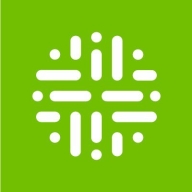

Collibra Governance and SAP Data Hub are competing in the data management category. SAP Data Hub stands out for its comprehensive features, while Collibra offers better pricing and support, appealing to cost-conscious businesses.
Features: Collibra Governance provides robust data stewardship, effective policy management, and efficient data governance. SAP Data Hub offers powerful data orchestration, seamless data integration, and extensive connectivity across complex environments.
Ease of Deployment and Customer Service: SAP Data Hub presents a complex deployment model but offers strong data processing. Collibra Governance provides a smoother deployment experience and solid support services for troubleshooting.
Pricing and ROI: Collibra Governance features competitive pricing with favorable ROI due to its focus on governance. SAP Data Hub has higher setup costs but justifies the expense with long-term gains from its extensive features.
| Product | Market Share (%) |
|---|---|
| Collibra Governance | 7.9% |
| SAP Data Hub | 1.0% |
| Other | 91.1% |

| Company Size | Count |
|---|---|
| Small Business | 12 |
| Midsize Enterprise | 7 |
| Large Enterprise | 33 |
Collibra Governance is a software solution for data governance, which refers to the set of policies, standards, and processes that govern how an organization manages, uses, and protects its data. Collibra Governance provides a centralized platform for managing data governance, enabling organizations to ensure data accuracy, completeness, and security.
The software includes tools for managing data lineage, data dictionaries, and metadata, as well as for monitoring data quality and compliance with data governance policies. It also provides a collaboration platform for stakeholders to work together on data governance initiatives, ensuring that data governance is integrated into the organization's data management processes.
Collibra Governance is designed for organizations of all sizes, from small businesses to large enterprises, and can be used across a variety of industries and use cases. It is a cloud-based solution that can be easily implemented and integrated into an organization's existing data management infrastructure.
Collibra Governance Features
Collibra Governance has many valuable key features. Some of the most useful ones include:
Collibra Governance Benefits
There are many benefits to implementing Collibra Governance. Some of the biggest advantages the solution offers include:
Reviews from Real Users
Collibra Governance is a solution that stands out when compared to many of its competitors. Some of its major advantages are that it has good data lineage, is easy to use, and has good customization capabilities in addition to many other great features.
A Sr. Systems Analyst, Master Data Governance at a manufacturing company expresses, “[The solution has] good data lineage and is surrounded by a helpful community.”
“[It’s] easy to use with good customization capabilities and great features,” says a Senior Consulting Analyst at a construction company.
According to Kriti T., Senior Manager, Service Design Manager at a pharma/biotech company, “The solution lets me associate the right people with the right assets, so anybody who has to look at end-to-end instances can use Collibra Governance and figure it out in terms of who to contact, what to do, and where to find what you need.”
The SAP® Data Hub solution enables sophisticated data operations management. It gives you the capability and flexibility to connect enterprise data and Big Data and gain a deep understanding of data and information processes across sources and systems throughout the distributed landscape. The unified solution provides visibility and control into data opportunities, integrating cloud and on-premise information and driving data agility and business value. Distributed processing power enables greater speed and efficiency.
We monitor all Data Governance reviews to prevent fraudulent reviews and keep review quality high. We do not post reviews by company employees or direct competitors. We validate each review for authenticity via cross-reference with LinkedIn, and personal follow-up with the reviewer when necessary.